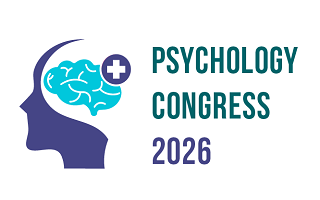3rd International Congress on
Psychology & Behavioral Sciences
March 26-27, 2026 | Osaka, Japan

Address: 5 Chome-3-68 Nakanoshima, Kita Ward, Osaka, 530-0005, Japan.
Psychology Congress 2026

University of Puerto Rico, Puerto Rico
Abstract:
This study presents preliminary findings from an ongoing survey of Puerto Rican university students (N ≈ 372; BSMAS, TFEQ-18, BSQ-8) contextualized within cross-cultural literature from Western/Latin American and East Asian samples. Prior research consistently identifies positive associations between social media use, thin-ideal internalization, and disordered eating attitudes (Aparicio-Martínez et al., 2019; Jiotsa et al., 2021; Sanzari et al., 2023). Psychometric applications of the TFEQ and BSQ in Spanish-speaking contexts further support examining emotional and uncontrolled eating as outcome variables (Jáuregui-Lobera et al., 2014). In East Asian populations, studies report that social media addiction correlates with body dissatisfaction and food addiction, often shaped by conformity pressures and K-pop beauty standards (Huang et al., 2023; Bai et al., 2024). Preliminary analyses from Puerto Rican students suggest positive correlations between problematic social media use and body dissatisfaction, with emotional eating emerging as a likely correlate—patterns consistent with both Western and Asian findings (Reyes-Rodríguez et al., 2010). However, these relationships must be interpreted through Puerto Rico’s hybrid cultural orientation, where collectivist familism—emphasizing loyalty and interdependence—coexists with Westernized beauty ideals (Rivero-Vergne & Berrios, 2020; Schwartz et al., 2010). Familism may buffer self-comparison effects, fostering resilience against social media’s psychological strain. By contrasting these emerging Puerto Rican patterns with established Asian and Western data, this study underscores the moderating role of collectivist values in shaping emotional regulation and body image. Findings highlight the need for culturally adaptive interventions integrating familism and media literacy to mitigate appearance-related distress across diverse societies.
Biography:
Alondra García Rosa is a graduate student with a BA in psychology, with minors in Human Rights and Women and Gender Studies, from the University of Puerto Rico, Rio Piedras Campus. Currently, she is a research assistant at the Emerging Technologies Research Laboratory and pursuing a PhD in psychology with an emphasis on Neurocognition and Human Development. Her research interests focus on the neural, psychological, social, and cultural factors that influence mental health. Exploring the intersection between social media, body image, anxiety, and emerging technologies to understand and predict risk factors for eating disorders and mental health in young people.
